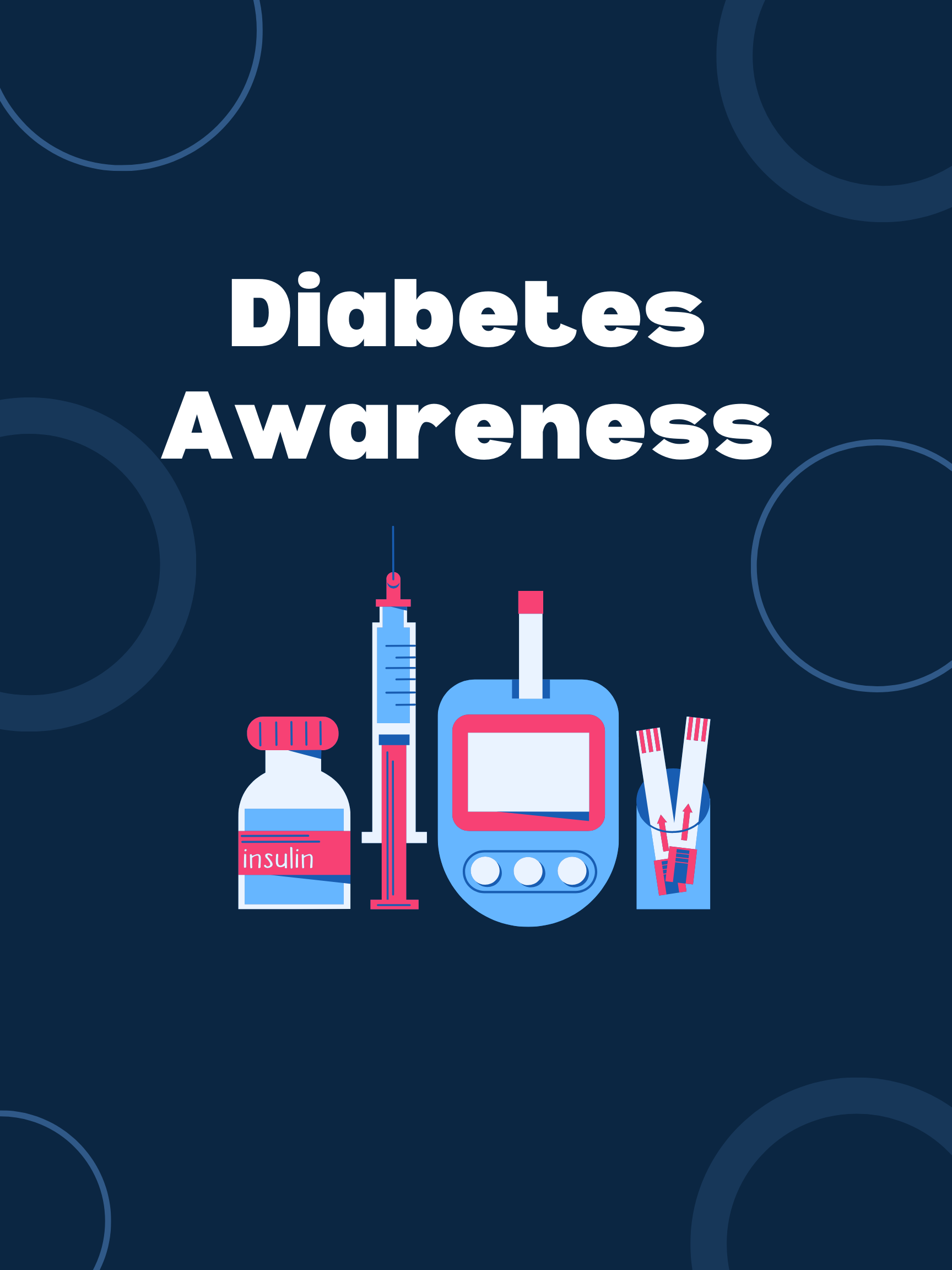Bad habits, lack of awareness can lead to unexpected diagnosis
Let’s be honest: a lot of college students take their good health for granted – we think we’re invincible. We eat, drink, and do whatever we want in any amount we want, without too much concern for what all those carbs and calories might be doing to us.
A whole, extra-large sausage supreme pizza and an entire two-liter bottle of soda? Bring it on – and hey, there’s some leftover Thanksgiving pie still in the fridge for dessert.
But the truth is, we might be putting ourselves at risk of developing disease with all the indulgence, particularly diabetes.
The rates of Type 1 and Type 2 diabetes are on the rise among American youth under the age of 20, according to a 2023 study published in the Journal of Diabetes. The disease can cause several health issues, including damage to vital organs like the heart and kidneys.
Type 1 diabetes (also known as juvenile diabetes) is when the body completely stops making insulin, the hormone that regulates blood sugar levels. Type 2 is when the body doesn’t produce enough insulin, resulting in insulin resistance. The study suggests the rates of T2D are especially high among Black and Native American youth.
Awareness of the increasing prevalence of the disease is key to helping us all make better, more informed decisions about our choices and dietary habits. It’s also important for us to become more aware of any other potential risk factors, like family history.
Herrera: A word of warning
Diabetes can sneak up on you – just ask my dad. When my father was diagnosed with Type 2 diabetes in his mid-50s, it caught him by surprise. He never had a history of the disease in his family.
“Getting diabetes was a weird experience because I never really had a sweet tooth,” said my father, Juan Herrera “I’m not really sure how I got diagnosed with diabetes, if I always chose to stay away from sweet things.”
My father is doing much better now than when he was first diagnosed, but diabetes has had a profound impact on his life. He’s often tired and sometimes has difficulty doing tasks that were once routine, like carrying heavier items.
“I have to wake up and take multiple pills, check my heart rate, check my sugar – all this throughout the day,” he said.“It gets tiring and it gets annoying because it feels like you depend on pills just to stay leveled.”
My dad said he was always so focused on work, that he failed to properly take care of himself – it’s a mistake he doesn’t want anyone to repeat.
“Take the time to look out for yourself now, so that when you are older you don’t have to worry about this as you grow.”
Rivas: My cousin’s cautionary tale
My younger cousin, David, always had a sweet tooth growing up.
As a child, it seemed he could never have enough sweets and sodas, and he never gave much thought to limiting his intake of sugar. He probably never thought it would cause any issues for him later in his life
David tended to ignore advice from others telling him to cut down on all those unhealthy foods. “I am still young, nothing will happen,” was his usual response, dismissing the concerns people had for his well being. It was an easy excuse, one a lot of people use to avoid taking accountability for their bad habits.
But “later” came a lot sooner for David when he was diagnosed with Type 1 diabetes at the age of 8. David’s doctors told him that his kidneys were at risk of failing if he didn’t keep his love of sugar in check.
Twelve years later, keeping it in check is now a part of David’s everyday routine. Now, he’s the one giving advice to other members of our family who aren’t taking care of themselves the way they probably should. Although it’s unfortunate that David had to learn this lesson the hard way, his experience is a cautionary tale for everyone not to take their health for granted – don’t assume that just because it hasn’t happened yet, that it couldn’t happen ever.
Even if you think, “nah, can’t be me,” it’s important to take care of your health now before you’re forced to take care of it later. Developing healthier habits now could improve the quality of your life down the line.

